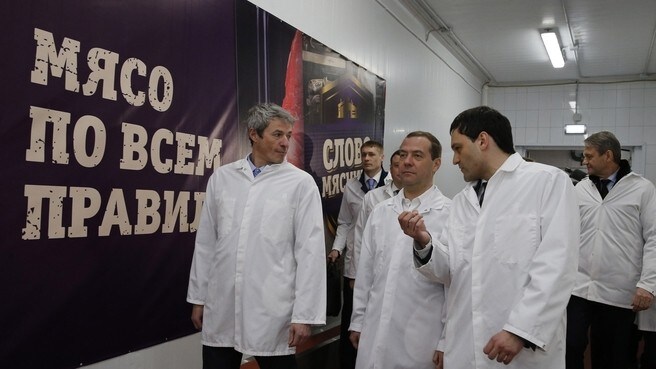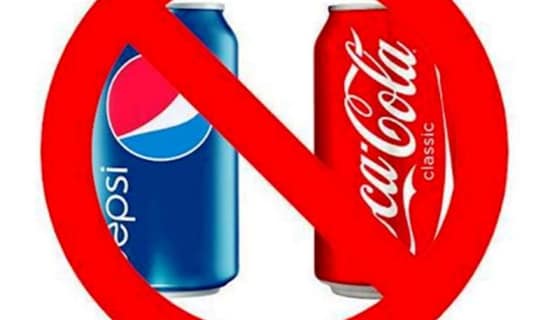On March 26, 2017, Russians took to the streets in anti-governments rallies, organized by opposition politician Alexey Navalny, who recently announced his candidacy for the 2018 presidential elections. The demonstrations marked the 17th anniversary of Russian President Vladimir Putin's rise to power on March 26, 2000. The demonstrators were protesting corruption in Russia, following the investigation of the Anti-Corruption Foundation, headed by Navalny, into Russian Prime-Minister Dmitry Medvedev extensive property holdings.[1] The day of the protests, Navalny was detained within the first 15 minutes of the Moscow march. On March 27, Moscow's Tverskoy court imposed a 15-day jail sentence on Navalny for resisting arrest at an unauthorized rally. Earlier, Navalny had also been fined 20,000 rubles ($350). He was freed from jail on April 10.[2]
Meanwhile, it was reported that the Moscow court already passed more than 200 rulings against demonstrators detained on March 26. The amount of fines exceeds 1.5 million rubles (around $26,240) and the total length of administrative arrests is 646 days. Law enforcement officers detained 1,043 activists. Administrative arrests as punishment were given to 65 detainees. The head of the Moscow branch of the Progress Party and associate of Navalny, Nikolay Lyaskin, was given a 25-day sentence.[3]
Following are reactions and analysis on Navalny's investigation and on the March 26 protests:

"The right way to wait for a bus, helps you avoid breaking the law on non-authorized rallies in Russia." (Yaplakal.com)
Medvedev's First Public Reaction To The Protests
On April 4, during a visit to a Tambov bacon plant, Russian Prime Minister Dmitry Medvedev commented on opposition leader Alexey Navalny's investigation. According to Medvedev, who never mentioned Navalny by name, the goal of the investigation is to get people out to protest in the streets, in order to achieve Navalny's political goals. Medvedev said: "Who profits from this? Those who orders such kind of materials - these are people with definite political goals. What are they trying to achieve? They are trying to say that the authorities behave badly, while they by themselves are better that the others. To put it in other words, all those films, which are being seriously funded (the money does not, of course, come from the people, there are private sponsors behind it) are directed at achieving certain political results. They use a kind of a compote recipe. They take all sorts of nonsense, absurd things – when it comes to me they collect info about my acquaintances or people I've never heard of, places where I've visited and places that I've never heard of... They collect photos, rubbish paper, clothes... Mix the product and present it. A man who watches it can't easily understand what it's all about. And if it's been paid well for such kind of a product – then the final product is a qualitative one.
"It might have been ok, if there had not been a story behind this attempt – the story is to try to get people to the streets in order to achieve political goals. These goals are obvious. That character [i.e. Navalny – Medvedev does not mention him by the name] is openly saying that everyone is bad and he wants to be elected as a president. He says that with no shame at all. For that purpose he drags people to the streets – on many occasions those are youngsters – and makes them hostages of his own political program.
"By the way, this personality – he is a convicted person. No illusions about him. Nevertheless, they use social networks, drag young people on the streets and the youth is chanting specific slogans... They take to the streets while breaking the law, unfortunately, thus they are being set up [to clash] with the police mechanism and suffer afterwards because of that. This is a dishonest position aimed at reaching personal goals. If I would react or comment on such kind of attacks and provocations every single time I would not be able to work normally."[4]

Medvedev during the visit to the Tambov bacon plant (Government.ru)
Annual Direct Line With Putin Postponed
The Kremlin decided to postpone the "Direct Line with Putin," the annual Q&A with Russian president Vladimir Putin until the summer. According to the Russian Presidential Spokesman, Dmitry Peskov, the decision is unrelated to the protests, although it was announced a few days after them. Peskov said: "The decisions on the dates for the 'Direct Line' were made about two months ago, long before those protests held a week ago. So any attempts to link them are rather absurd."[5]
Tass Publishes Report Showing Public Support For Putin And Medvedev
In order to show that Putin and Medvedev enjoy public support, the Russian news agency Tass published a poll on the credibility and approval rating of the Russian government. A survey conducted by the Russian Public Opinion Research Center showed: "Vladimir Putin continues to be way ahead of other politicians in the credibility ranking (this figure changed from 53.1% to 49.6% during the month). According to the latest poll, the trio of the most trusted politicians also includes (Prime Minister) Dmitry Medvedev (17.6%) and (Defense Minister) Sergey Shoigu (17.3%)." Tass also added: "According to the poll results, during the week of March 27 [the day after the protests] - April 2, the Russian president enjoyed a 82.7% approval rating, while the prime minister's performance was assessed positively by 54.8% of the respondents, and the government's performance was seen positively by 61.5%. The survey was conducted on the basis of interviews with 600 respondents in at least 80 Russian regions. The margin of error does not exceed 1.9%."[6]
Mk.ru Columnist: For Putin, It Is Counterproductive To Jail Navalny Russian daily Moskovskij Komsomolets columnist Mikhail Rostovsky wrote that the Russian authorities understand that it would be counterproductive to jail Navalny. Rostovksy wrote: "The authorities understand fully well that for Navalny, as person, jail would be an unpleasant experience, but for Navalny, as a politician, [jail] would represent a different issue... Imprisoning Navalny will skyrocket his political weight, it will cause to become an international political mega-star, and he would become the 'second Khodorkovsky.' Naturally, the authorities want to prevent this scenario. Yet, there is a paradox: by not making Navalny a favor by imprisoning him, the authorities grant him de facto immunity from any action from the official judiciary system mechanism... I'm also curious about how Putin will solve the problem of Medvedev. Refusing to provide meaningful answers to the society, regarding the corruption claims, the prime minister turned out to be a 'toxic' political figure, who drags down the overall authorities ratings down.
"Seeking a substantive answer to the very substantive accusations from the Navalny fund, the prime minister turned himself into a toxic political figure, into a man who drags down the overall power rating. At the moment, the authorities may afford to live with a 'toxic' prime minister and ruling party leader. However, the closer the presidential elections will get, the higher and heavier will be the price to afford such a 'luxury' [i.e. to have a 'toxic' prime minister]. I do not know what awaits Russian policy in the coming months - but certainly not boredom."[7]

Navalny is arrested by the police on March 26, 2017 (Themoscowtimes.com)
State Duma Speaker Volodin: 'It Is Time To Unite In Order To Protect The PM'
Communist MP Valery Rashkin filed a formal request with Russia's Investigative Committee, asking its director, Alexander Bastrykin, to investigate the corruption allegations against Medvedev. On April 5, the State Duma voted against the decision to arrange a parliamentarian hearings and insight into Navalny's investigation.
Vasily Piskarev, chair of anti-corruption and security committee of the Duma, said: "Not a single one of his [Navalny's] so-called investigations has anything to do with the truth or with fighting corruption. His artistic product – as it was proved before, and I'm sure is now – is a mixture of dirt, fantasy, set-up tricks and falsifications based on a vivid political prevocational context."[8]
Duma speaker Vyacheslav Volodin said that he is against conducting the investigation in the parliament since he does not see any sense in conducting such a hearing. He also added that political factions in the Duma understands that "it's time to unite in order to protect the prime-minister from attacks by Navalny, who acts on the voices of foreign intelligence services". He said that "it's not right to drag the Duma into this story."[9]

Graffiti portraying the photo that became the symbol of the protest (Vk.com/s_mayonezom)

Russian independent media outlet Meduza.io interviewed the young woman who was carried off by several police officers before being taken to a nearby police van. See the article: "'And then they carried me off' The young woman from one of Moscow protests' most infamous photos tells her story."(Twitter.com/antonsemakin)
Russian Expert Markov: 'Medvedev's Political Career... Will Not Be Affected At All'
In an interview with Moskovskij Komsomolets, Sergey Markov, director of the Institute for Political Studies, discussed Medvedev's future. The interview was published soon after the release of Navalny's report and before the March 26 protests.
Q: "The information released by the Anti-Corruption Foundation – did it come from their own investigation or is it a 'leak from above'?"
Markov: "I'm pretty sure that Navalny's people helped to process the materials, but the bulk of information came from other sources that attack Medvedev. Possibly some political figures who wish to have the prime minister replaced. However, some people think that the information, on the contrary, originated from figures within the prime minister's own circle... It may be, say, the CIA or the British intelligence who provided the material to Navalny, or it may be someone impersonating the CIA and British intelligence. Or perhaps it could be some kind of payback for the fact that Medvedev had not approved the state support for someone's business projects. That last version seems to be the most credible one. We know from experience that most of similar conflicts are related to business."
Q: "How will the publication of this investigation affect the career of Dmitry Medvedev?"
Markov: "I think that Medvedev or rather one of the government departments, will have to provide a clear and precise explanation of all the issues raised in the investigation. But Medvedev's political career, most likely, will not be affected at all."
Q: "And how could it affect Navalny?"
Markov: "Legally, Navalny is off the hook, he is not liable for slander. He can, however, become a personal enemy of Dmitry Medvedev's... I do not expect any impact, whether positive or negative, on Navalny's election prospects. Although he drew more attention to himself than he used to have, in terms of positioning himself as the radical opposition leader. I believe that [Russian opposition leader and former Prime Minister Mikhail] Kasyanov and [founder of the liberal party Yabloko, Grigory] Yavlinsky are jealous of Navalny."[10]
[1] See MEMRI Special Dispatch No. 6826, New Navalny Investigation Accuses Medvedev Of Corruption, March 10, 2017.
[2] See MEMRI Special Dispatch No 6850, Navalny Leads Russia's Anti-Government-Corruption Protests, March 29, 2017;
See MEMRI Special Dispatch No. 6853, Russia This Week – March 19 - 30, 2017, April 3, 2017.
[3] Rbc.ru, April 6, 2017.
[4]Government.ru, April 4, 2017.
[5]Tass.com, April 3, 2017.
[6] Tass.com, April 6, 2017.
[7] Mk.ru, March 31, 2017.
[8] Rbc.ru, April 5, 2017.
[9] Rbc.ru, April 4, 2017.
[10] Mk.ru, March 3, 2017.








